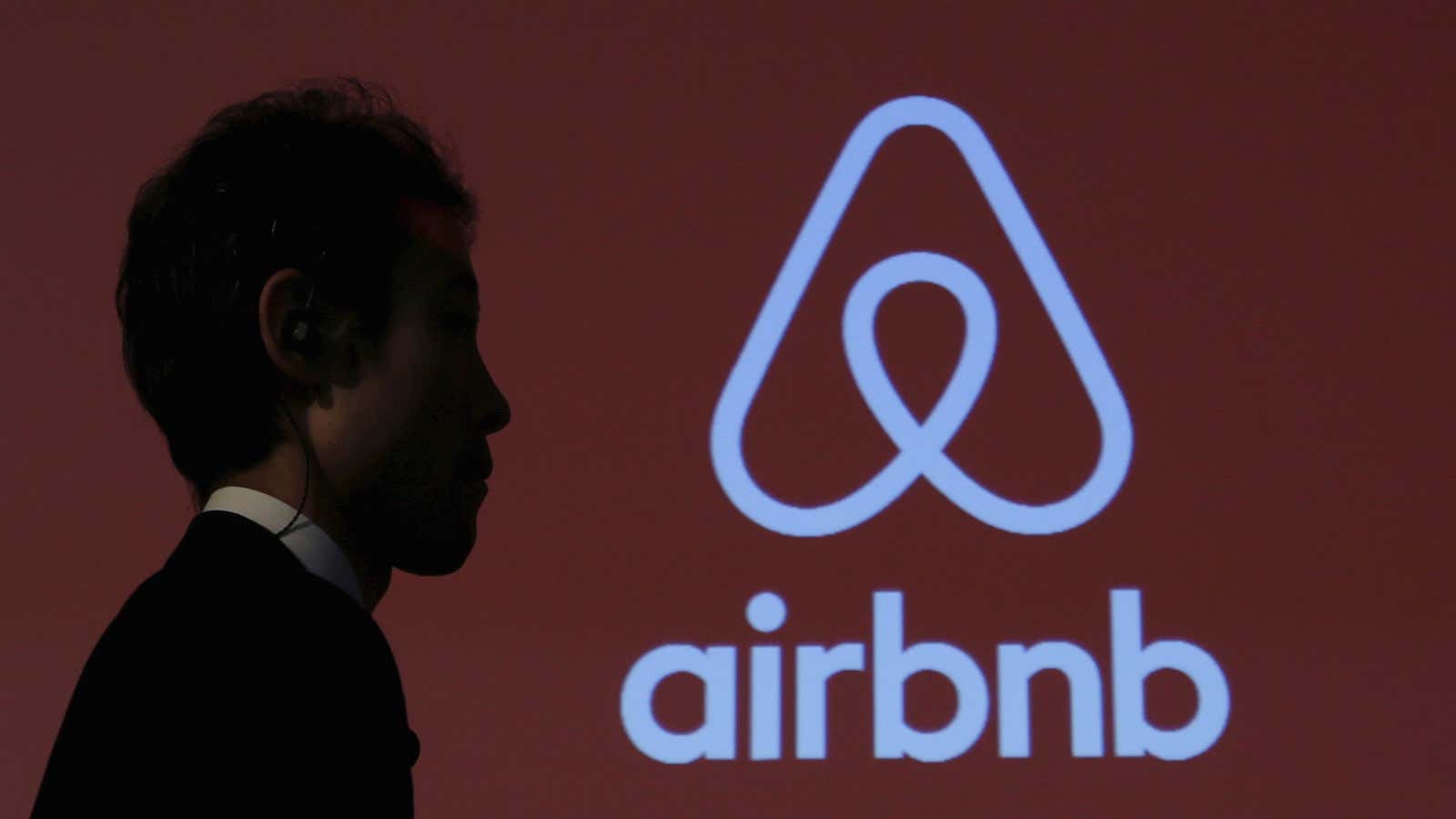Home-rental company Airbnb has “acqui-hired” the majority of the team behind ChangeCoin, a startup that runs a bitcoin-based micropayments service, according to four people with knowledge of the deal.
The alternative lodging site has been looking at a few bitcoin and blockchain startups, according to two sources, to study what the technology could do for its services. Companies like Uber and Airbnb are built on their ability to manage supply and demand, which could be aided by a powerful, open ledger system like blockchain.
Through a service called ChangeTip, ChangeCoin lets users send tiny amounts of money, or tips, over social networks including Twitter and Reddit. But Airbnb appears to only be interested in the talent behind the company: ChangeCoin is still shopping its intellectual property, sources said.
The firm is run by ex-Yahoo engineer and noted bitcoin entrepreneur Nick Sullivan, and has between 11 and 50 employees, according to CrunchBase.
Whereas financial firms have been devoting resources and announcing pilot projects around blockchain, consumer technology companies haven’t said much on the topic. But Airbnb recently hinted at its interest in the tech, with Nathan Blecharczyk, a co-founder and the company’s chief technology officer, telling CityAM that blockchains might allow Airbnb to share its user profiles with other companies. ”The question is whether there’s a way to export [a user’s reputation] and allow access elsewhere to help other sharing economy models really flourish,” he said.
As Airbnb has grown its userbase to more than 17 million in summer 2015, according to the company (pdf), it’s also developed a valuable database of reviews and ratings that let hosts and guest judge the trustworthiness of who they’re dealing with. ”Within the context of Airbnb, your reputation is everything, and I can see it being even more so in the future, whereby you might need a certain reputation in order to have access to certain types of homes,” Blecharczyk told CityAM.
Trust is something blockchains are uniquely suited to dealing with. They can provide a permanent record of transactions and other data, and, in some cases, can render that data universally readable, as in the case of the bitcoin blockchain.
If Airbnb can figure out a way to make its user profiles immutable and universally readable, they could become a trusted form of digital identity, a bit like the profiles that credit bureaus create for individuals. If these identities can be “exported” to other platforms, as Blecharczyk said, they could become hugely valuable. An Uber driver, for example, might know if his next passenger came with a history of leaving Airbnb properties damaged.
If Airbnb’s feeling adventurous, it could also start exploring more esoteric, but potentially hugely useful, ways of using blockchains, such as door locks that open or close when a user sends money to a homeowner over a blockchain.
ChangeTip built a relatively successful product, but it wasn’t enough to build a sustainable company. ChangeCoin had been shopping itself to highly valued, consumer-facing startups for several months, according to a source with knowledge of the deal.
Since launching in 2014, ChangeCoin has raised $5 million from investors including 500 Startups, Digital Currency Group, and Pantera Capital, according to Pitchbook.
